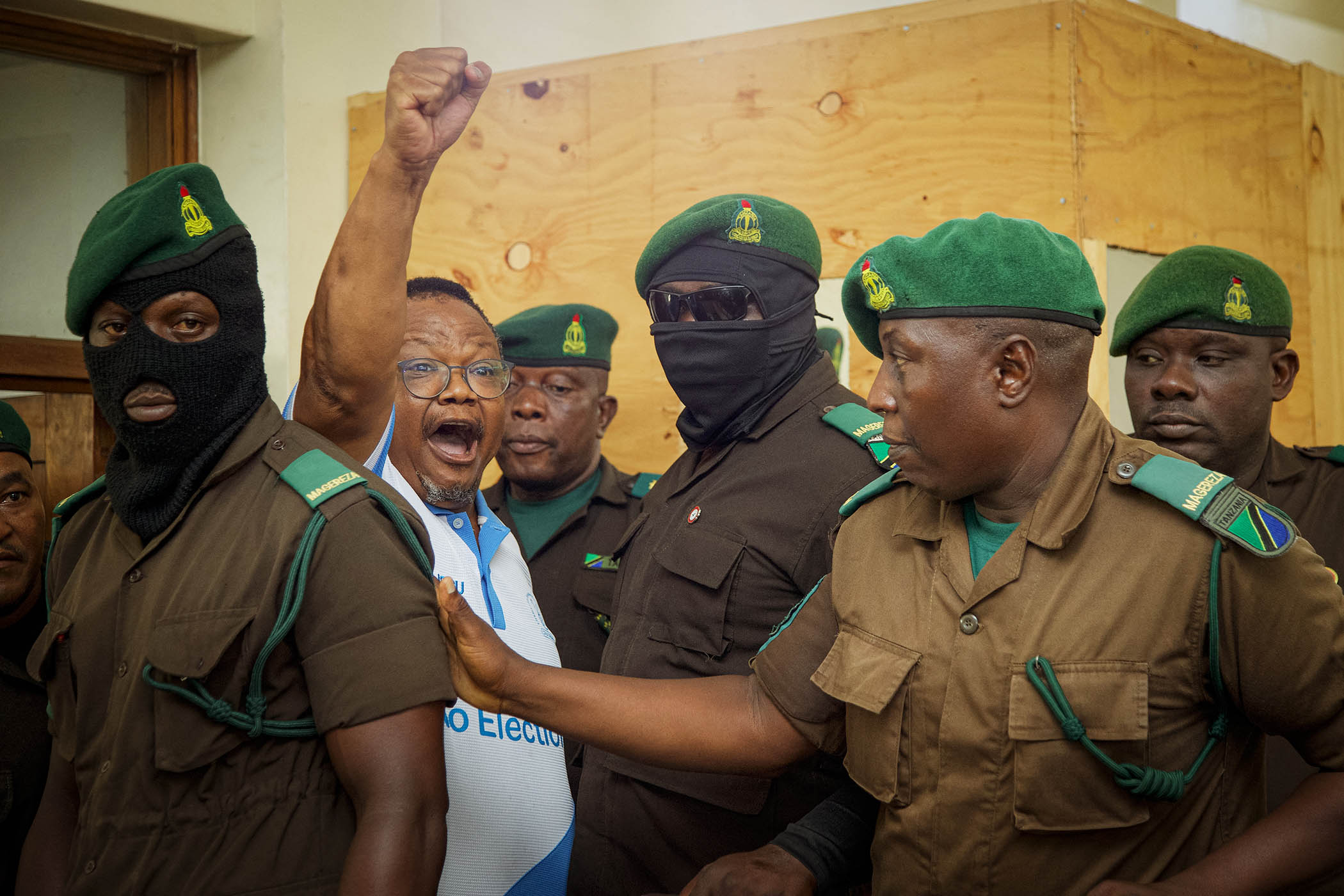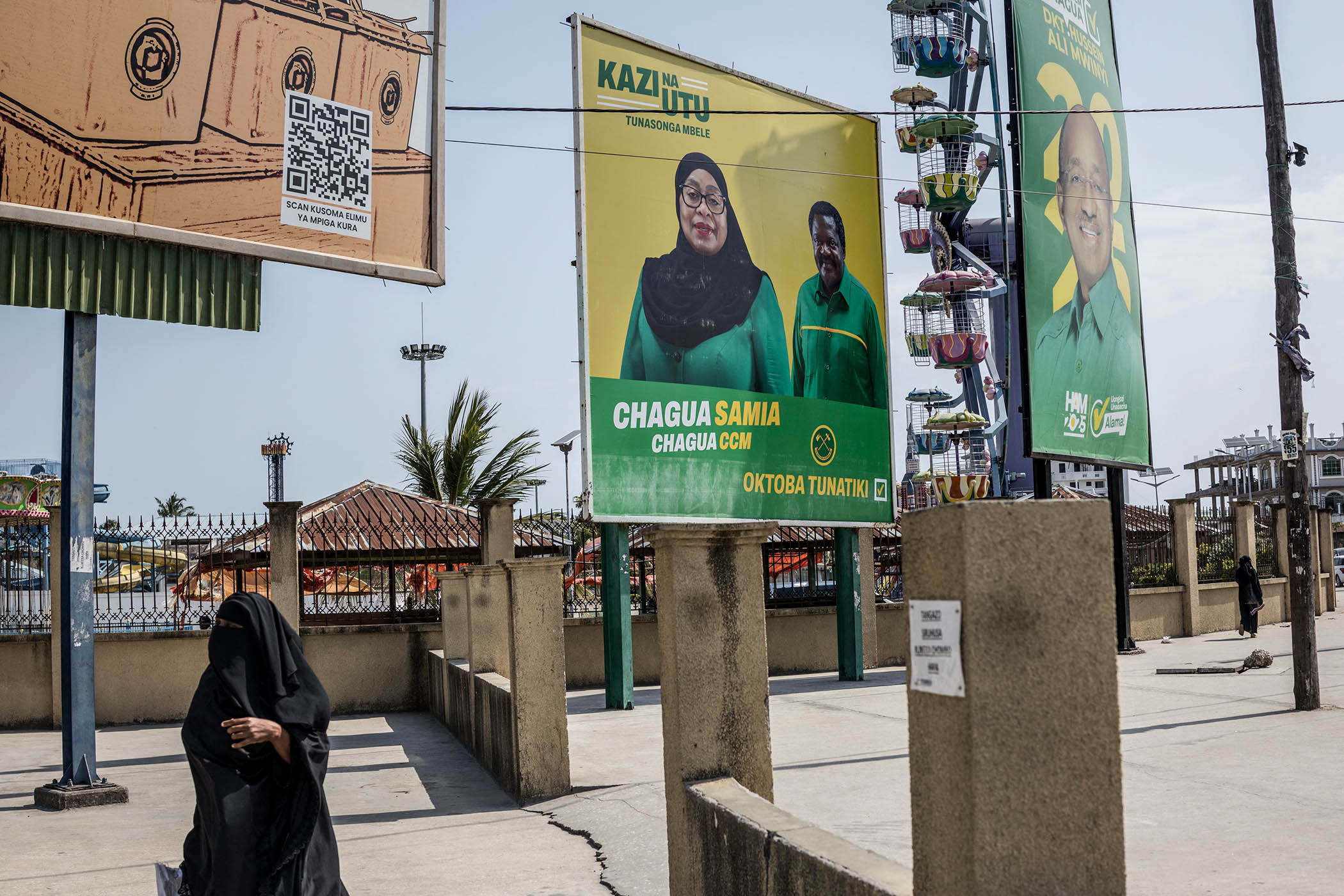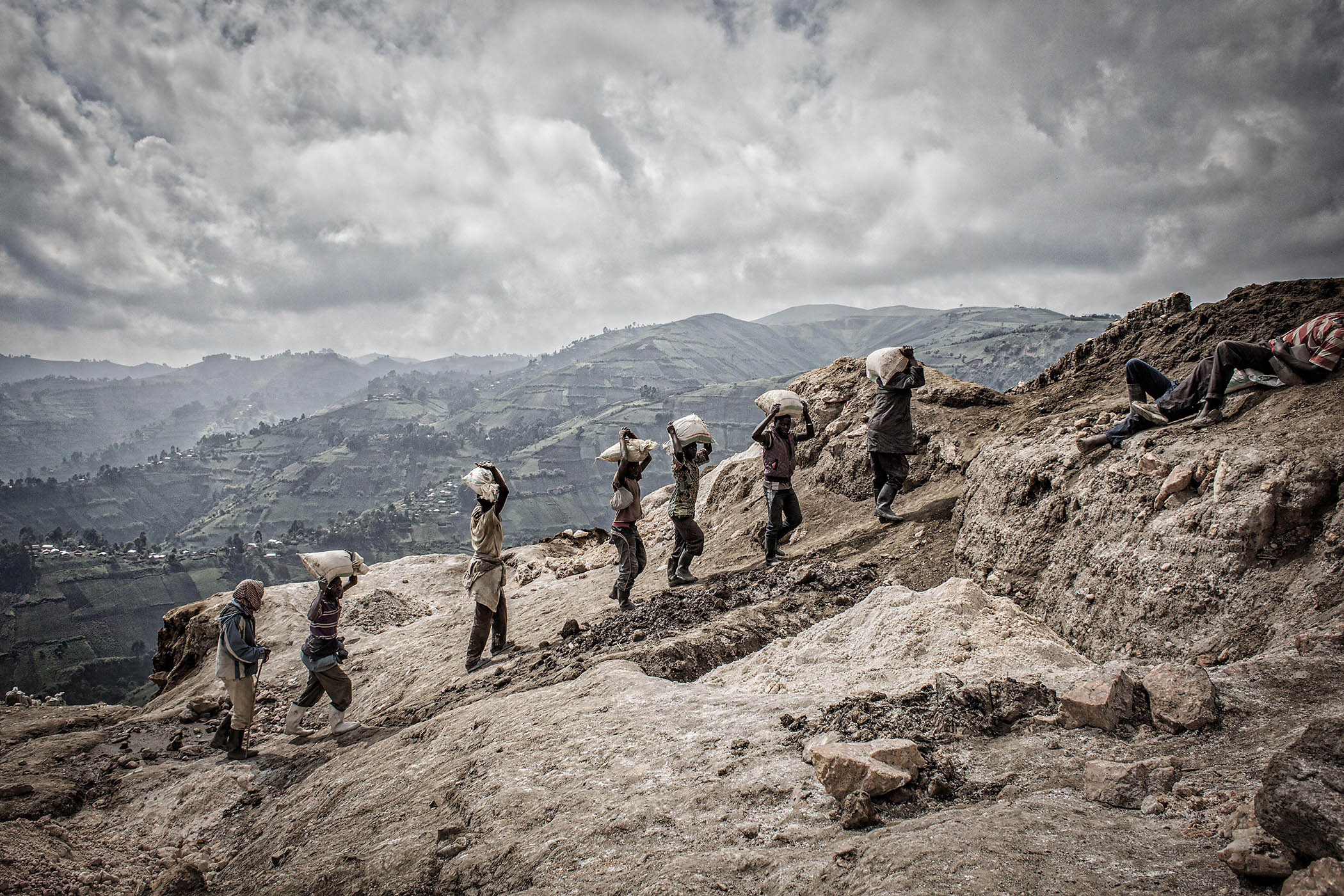As Tanzania’s main opposition leader, Tundu Lissu should be on the campaign trail rallying support ahead of the country’s elections on Wednesday. Instead he is on trial for treason and his party, Chadema, is banned from running.
Few doubt the outcome of the vote: a victory for President Samia Hassan. She came to power as Tanzania’s first female leader, promising reform after the death of her authoritarian-minded predecessor, John Magufuli, in 2021. Her ascent was hailed as a chance to stem the country’s slide towards autocratic rule. Instead her government has launched what Amnesty International describes as a “wave of terror” ahead of her first electoral test.
Reports of abductions and enforced disappearances have become commonplace, and opposition figures say they face constant harassment. Chadema says its deputy chairman, John Heche, was detained as he tried to attend Lissu’s trial on Wednesday. To avoid the security services, human rights activists are staying off public transport and communicating on encrypted apps.
“This is not an election,” said John Kitoka, Chadema’s spokesman. “This is a piece of theatre. Without the main opposition taking part, the ruling party is just contesting against itself.”
A recent report by Amnesty International alleges a sweeping crackdown: opposition activists subject to torture, the weaponisation of the legal system and attacks on parishioners at their churches. Several government critics have been killed. They include Chadema official Mohamed Ali Kibao, who was kidnapped from a bus last September in Dar es Salaam, Tanzania’s biggest city, according to his party. He was found dead a few days later. Chadema said an autopsy showed he had been beaten and had his head drenched in acid. Although Hassan ordered an inquiry into his killing, the police investigation shows few signs of progress.
Kitoka said Chadema’s assets have been frozen and that it does not have access to its offices. The candidate of the second-biggest opposition party, Luhaga Mpina of the ACT-Wazalendo, has also been disqualified on a technicality, despite a court ruling allowing him to run. Earlier this year Tanzania banned X, claiming it was spreading pornography.
Hassan will have a wary eye on Tanzania’s neighbours, Kenya and Mozambique. Both have been rocked by protests, spearheaded by young people fed up with unemployment and political elites. So far Tanzania has kept a lid on simmering unrest through repression. In May it arrested and deported Kenyan and Ugandan human rights activists who visited to express solidarity with Lissu, according to advocacy groups. One of them claims he was hung upside down, stripped naked, beaten and sodomised while in detention, before being dumped at the border. Hassan has not commented on the allegations directly, but said foreigners would not be allowed to “meddle” in Tanzania’s affairs. Last year police arrested more than 500 people who were planning to attend a youth rally in the southwestern city of Mbeya.
“There is a serious attempt to silence everyone,” said Tito Magoti, a human rights lawyer who spent a year in detention in 2021. “We live in fear, total fear.”
Related articles:
A spokesman for Tanzania’s government did not reply to a message seeking comment.

Tundu Lissu enters the court in May
Tanzania has been governed since independence by the same party, first as the Tanganyika African National Union and since 1997 as Chama Cha Mapinduzi (CCM). Since 1992 the country has been a multiparty democracy but Magufuli, whose nickname was the ‘Bulldozer’ eroded the independence of many of its institutions.
Newsletters
Choose the newsletters you want to receive
View more
For information about how The Observer protects your data, read our Privacy Policy
Lissu, a crusading human rights lawyer, has long been a thorn in the side of CCM. In 2017 he was shot 16 times by a would-be assassin. It is not clear who ordered the hit. Lissu required nearly 20 operations to repair the wounds. Afterwards he went into exile but returned home briefly to contest the last vote in 2020, and then went back again in 2023 after Hassan paused Magufuli’s ban on political rallies.
Lissu’s Chadema party has adopted the slogan “no reform, no election” and called for a voter boycott and protests. His current treason charges, which he denies, stem from comments at a rally in April, when he called for the election to be cancelled and pledged to “spoil it”.
Robert Amsterdam, a lawyer who has represented Lissu, describes the charges as “transparently fraudulent”. “He is talking about reforming the system within the system,” said Amsterdam. “To turn that into treason is to make a mockery of any form of electoral speech.”
Photographs by Marco Longari/AFP via Getty Images, Ericky Boniphace/AFP via Getty Images



